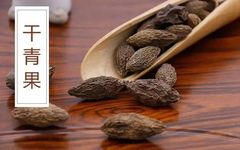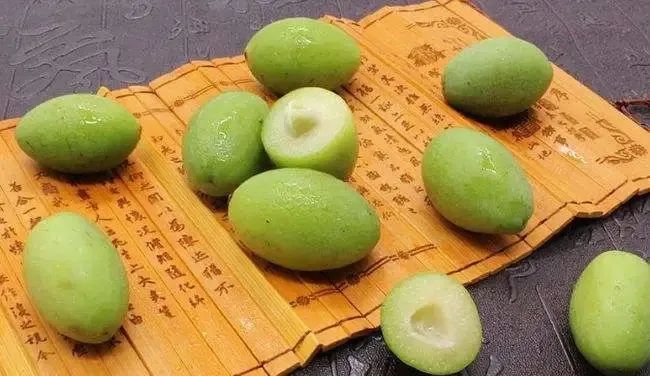
Effects and Functions
Qingguo (青果), originally from China, is most abundantly distributed in Fujian Province. When first eaten, it has a bitter taste, but after chewing for a while, it becomes fragrant and sweet, leaving a lingering aftertaste. The fruit contains 17 essential amino acids, is rich in calcium and vitamin C, and has effects such as relieving fatigue, soothing the throat and stopping cough, and delaying aging.1. Relieving Fatigue Qingguo contains various vitamins, trace elements, and amino acids that can relieve fatigue and enhance attention.2. Soothing the Throat and Stopping Cough Qingguo can be used for cough and sore throat caused by upper respiratory infections. It has the effect of soothing the throat and stopping cough, and can alleviate chronic pharyngitis. Drinking Qingguo as a tea can relieve throat discomfort and improve chronic inflammation of the throat.3. Delaying Aging Qingguo has certain anti-aging effects due to its high content of vitamin C and trace element selenium, which can improve physical strength and delay aging.
Nutritional Value
Qingguo is rich in nutrients, containing 17 essential amino acids, as well as protein, carbohydrates, fats, vitamin C, and minerals such as calcium, phosphorus, and iron. It is effective for sore throat and cough, and can relieve anxiety and hangover, as well as remove fish bones.
1. The flesh of Qingguo contains vitamin C and minerals such as calcium, phosphorus, and iron, with vitamin C content 10 times that of apples and 5 times that of pears and peaches. Its calcium content is also high and easily absorbed by the body.
2. The vitamin C in Qingguo can inhibit the formation of nitrosamines from the combination of nitrites and amines.
3. The vitamin E in Qingguo has antioxidant properties.
Incompatible Foods
1. Beef
Qingguo is rich in calcium and vitamin C, but should not be eaten with beef, as it may cause bloating and stomach discomfort.
2. Cold Foods
Qingguo is neutral in nature, and its gelatin and fat can increase intestinal moisture, facilitating smoother bowel movements. However, consuming it with cold foods may lead to diarrhea.
Suitability and Contraindications
Suitable: Patients with sore throat
Qingguo contains 17 essential amino acids and has effects of clearing the lungs, soothing the throat, and generating fluids, making it suitable for patients with sore throat.
Contraindications: Those with spleen and stomach deficiency or excessive stomach acid
Qingguo has a sweet and sour taste, and those with spleen and stomach deficiency or excessive stomach acid should not consume it in large amounts, as it may worsen discomfort.
Maternal and Infant Considerations
Pregnant women can consume it.
Qingguo, also known as olive, has the effect of clearing the lungs and moistening dryness. Consuming olives during pregnancy and lactation significantly promotes the brain development of infants. Olive oil is rich in vitamin E and is a nutritious food suitable for all ages. However, note that a type of black olive should not be consumed by pregnant women.
Infants can consume it.
Qingguo is rich in calcium, which is very beneficial for the skeletal development of babies. However, for very young infants, the flesh of Qingguo should be mashed before giving it to them to avoid choking on whole fruits.
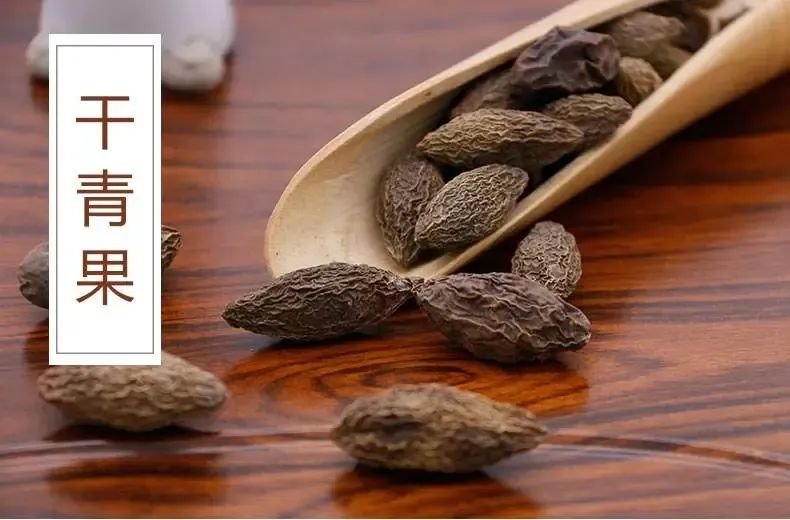
[Herb Characteristics] Spindle-shaped, blunt at both ends. The surface is brownish-yellow or dark brown, with irregular wrinkles. The flesh is gray-brown or brown, and hard in texture. The seed is spindle-shaped, dark reddish-brown, with longitudinal ridges, divided into three chambers, each containing one seed. Odorless, the flesh has a bitter taste, and becomes slightly sweet after prolonged chewing.
[Nature and Taste] Neutral in nature, sweet and sour in taste. It enters the Lung and Stomach meridians.
[Effects and Functions] Clears heat, soothes the throat, generates fluids, and detoxifies. It belongs to the category of clearing heat and detoxifying herbs.
[Clinical Applications] Dosage: 4.5–9 grams, decocted for oral administration. Used to treat sore throat, cough, thirst, and poisoning from fish and crabs. Clinically used to treat bacterial dysentery, nebulized inhalation therapy for pharyngitis, and topical application for mouth sores and skin diseases, as well as oral formulas for itchy dry cough.
- Incompatible Foods
- 1. BeefQingguo is rich in vitamin C, but should not be eaten with beef, as it may cause bloating and stomach discomfort.2. Cold FoodsThe gelatin and fat in Qingguo can increase intestinal moisture, facilitating smoother bowel movements. However, consuming it with cold foods may lead to diarrhea.
- Suitability and Contraindications
- Suitable: Patients with sore throat Qingguo contains 17 essential amino acids and has effects of clearing the lungs, soothing the throat, and generating fluids, making it suitable for patients with sore throat.Contraindications: Those with spleen and stomach deficiency or excessive stomach acid Qingguo has a sweet and sour taste, and those with spleen and stomach deficiency or excessive stomach acid should not consume it in large amounts, as it may worsen discomfort.
- Maternal and Infant Considerations
-
Pregnant women can consume it. Qingguo, also known as olive, has the effect of clearing the lungs and moistening dryness. Consuming olives during pregnancy and lactation significantly promotes the brain development of infants. Olive oil is rich in vitamin E and is a nutritious food suitable for all ages. However, note that a type of black olive should not be consumed by pregnant women.
Infants can consume it. Qingguo is rich in calcium, which is very beneficial for the skeletal development of babies. However, for very young infants, the flesh of Qingguo should be mashed before giving it to them to avoid choking on whole fruits.
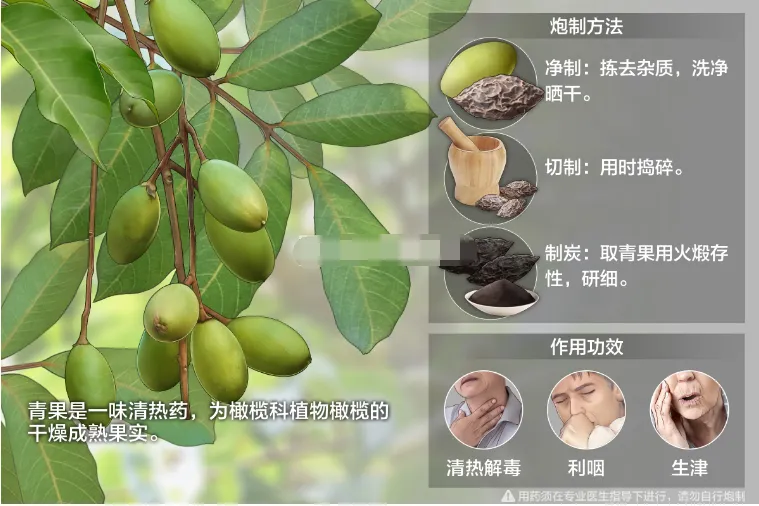
This product is the dried mature fruit of the olive plant (橄榄科植物橄榄).
Mainly produced in Guangdong, Fujian, Sichuan, and other regions. The mature fruit is harvested in autumn, dried or used fresh. The best quality has thick flesh and a taste that is initially bitter and then sweet. It should be crushed before use.
Identification of Traditional Chinese Medicine: This product is spindle-shaped, blunt at both ends, 2.5–4.0 cm long, and 1.0–1.5 cm in diameter. The surface is brownish-yellow or dark brown, with irregular wrinkles. The flesh is gray-brown or brown, and hard in texture. The seed is spindle-shaped, dark reddish-brown, with longitudinal ridges; divided into three chambers, each containing one seed. It has a slight odor, and the flesh has a bitter taste, becoming slightly sweet after prolonged chewing.
Herbal Properties: Sweet, sour, neutral. It enters the Lung and Stomach meridians.
Primary Effects: Clears heat and detoxifies, soothes the throat, generates fluids. It is used for sore throat, cough with thick phlegm, thirst, and poisoning from fish and crabs.
Dosage: 5–10 grams for oral administration.
Precautions: Use with caution in the early stages of exterior syndrome.
Modern Pharmacology: This product can stimulate the salivary glands, increasing saliva secretion. Qingguo extract has protective effects against hepatotoxicity caused by galactosamine and can also alleviate liver damage from carbon tetrachloride.
Selected Formulas: For excessive drinking: 10 pieces of Qingguo, decocted for drinking. For dry throat and cough: an appropriate amount of fresh Qingguo, decocted and concentrated into a paste, taking 1–2 spoonfuls each time. For asthma and tuberculosis: 50 grams of Qingguo, stewed with 500 grams of lean pork, without adding salt, divided into 12 servings, taken 3 times a day.
For eczema: 100 grams of fresh Qingguo, mashed, boiled with an appropriate amount of water until the liquid turns green. Use sterilized cotton to apply the liquid to the affected area.
For malaria: Place one Qingguo inside a frog’s belly and stew it in water for consumption.
For gastrointestinal tumors: Use an appropriate amount of Qingguo and Siberian ginseng root, soak in white wine for 2 months before consumption.
For poisoning from toxic plants: Use 100 grams of Qingguo, remove the pit, mash, and mix with purified water to extract the juice for consumption.
8. For poisoning from pufferfish, fish, and turtle, and for removing fish bones: Juice Qingguo or brew a strong soup. From the Book of Dietary Therapy
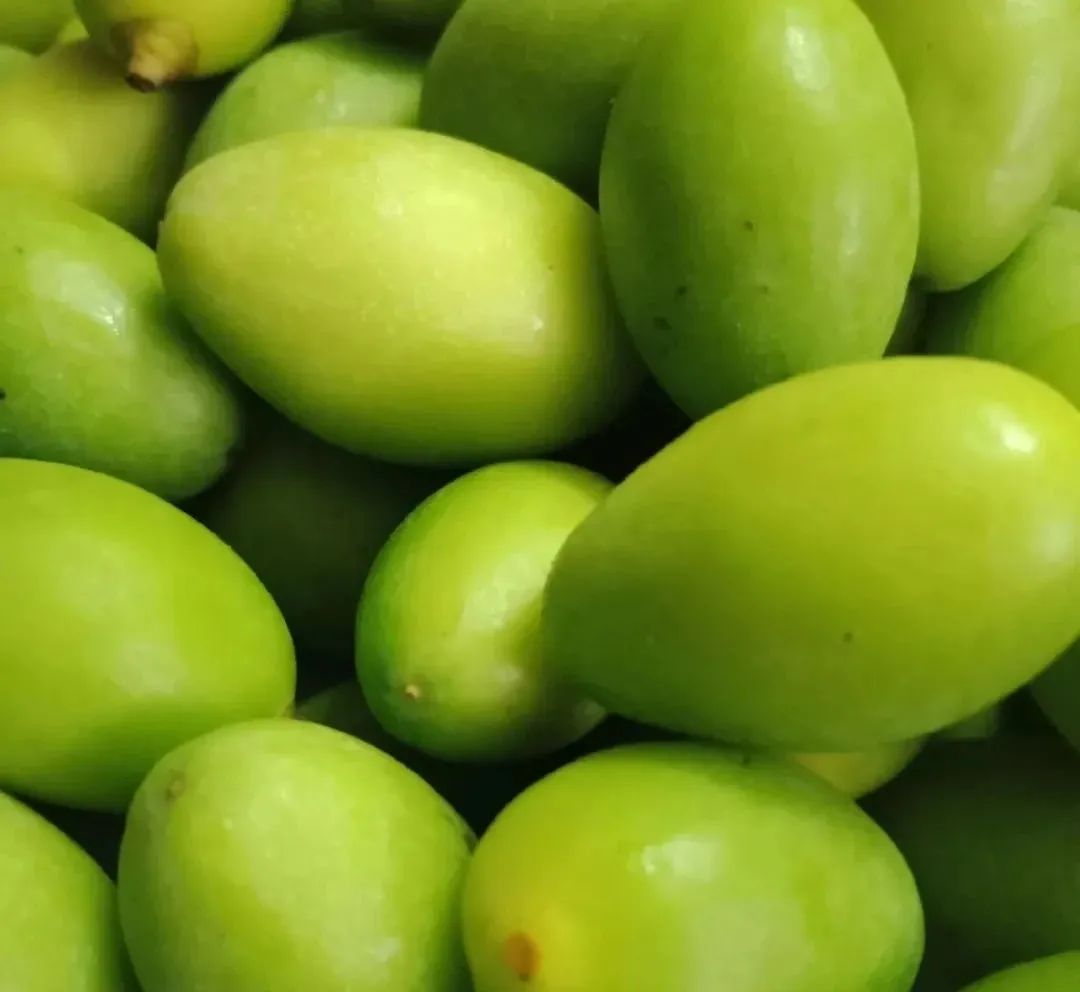
Compound Preparations
Qingguo Pills
Clears heat and soothes the throat, reduces swelling and relieves pain. Used for redness and swelling of the throat, throat pain, loss of voice, dry mouth and tongue, and dry cough with little phlegm caused by heat accumulation in the lungs and stomach.
Qingyan Luhou Pills
Clears heat and soothes the throat, reduces swelling and relieves pain. Used for chest discomfort, thirst, irritability, cough with abundant phlegm, redness and swelling of the throat, throat pain, and loss of voice caused by wind-heat invasion and excess heat in the lungs and stomach.
Gancao Juhong Bingmei Tablets
Clears heat and opens the voice. Used for loss of voice caused by wind-heat invading the lungs; throat pain, dryness, burning sensation, and congestion of the throat mucosa caused by acute pharyngitis due to wind-heat invasion.
However, the use of herbal medicine must be based on syndrome differentiation and treatment principles, and should be guided by a professional TCM practitioner. One should not use it arbitrarily or believe in folk remedies and advertisements.
Precautions
-
During medication, avoid cold, raw foods, spicy and greasy foods, and abstain from smoking and alcohol.
-
Pregnant and lactating women: If you are pregnant, planning to become pregnant, or are in the lactation period, please inform your doctor and consult whether TCM treatment is appropriate.
-
Children: Medication for children should be conducted under the guidance of a doctor and adult supervision.
-
Please store herbal materials properly and do not share your medications with others.
-
Avoid using copper or iron utensils for decocting herbs.


